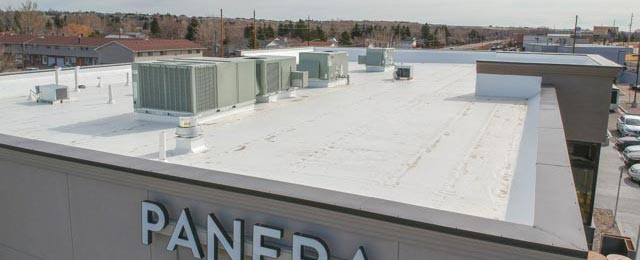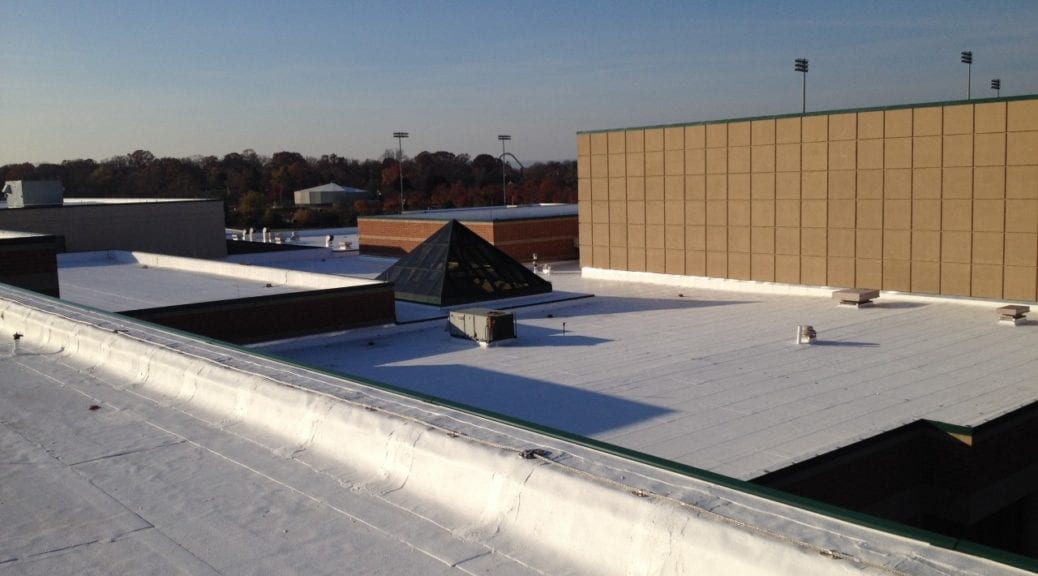Metal Roof Restoration Sydney Sydney Commercial Roofing For Warehouses
Sydney Wide Roof Repairs Commercial Roof Maintenance Sydney
The impact of weather on commercial roof replacement scheduling is profound and multifaceted - Commercial Roofing Upgrades Sydney. It plays a vital function in determining the feasibility of such initiatives and can influence timeframes, budgets, and general project outcomes
Seasonal variations, including excessive temperatures, heavy rains, and snow accumulation, significantly affect the roofing course of. Roofing materials usually have particular temperature thresholds inside which they are often applied successfully. For example, sure adhesives may require warmer temperatures to cure properly, making cold weather a challenging think about scheduling.
Rain poses another problem. Wet materials can lead to problems similar to compromised adhesion and long-term structural integrity points. Scheduling roof replacements through the wet season may find yourself in delays or even full halts in work, particularly for flat roofs the place pooling water could additionally be a priority.
Residential Roofing Services Sydney Commercial Roofing Sydney Cost Estimate
Wind is also a important issue to think about. High winds can pose safety risks for roofing crews and enhance the likelihood of accidents on website. This necessitates cautious planning to guarantee that replacement operations are conducted in protected circumstances, additional affecting the timeline of the project.
The geographic location of a commercial property plays a significant function in this scheduling dilemma. Areas vulnerable to harsh climates or excessive weather events, similar to hurricanes, tornadoes, and blizzards, require a unique method to scheduling roofing projects. Contractors should be proactive in planning round these potential disruptions.
Moreover, effective communication between the contractor and the property manager is important. Regular updates about weather forecasts might help make informed decisions concerning when to proceed or halt work. Collaborative planning can result in extra efficient project management and better preparedness for surprising weather events.
Professional Roof Gutter Repairs Custom Commercial Roof Replacement Sydney

It's also value noting that delays as a result of opposed climatic conditions can lead to increased costs. As labor and material prices fluctuate throughout the year, the original estimates might no longer be viable. This pressure on budgets is yet another side of the impact of weather on commercial roof replacement scheduling.
Post-replacement issues such as leaks or damages can arise if the roof was not installed underneath optimal conditions. Inadequate curing or sealing during harsh weather can result in issues that necessitate extra maintenance or repairs quickly after set up. These follow-up points add to the general prices and may pressure the connection between contractors and purchasers.
Construction timelines are not just affected by the direct influence of weather. Factors corresponding to humidity, temperature variations, and the potential for surprise weather events also require constant reassessment of the schedule. Roofing professionals have to account for these variables and stay flexible as they adapt to real-time circumstances.
Technological advancements have launched new materials and set up strategies that offer more versatility in challenging weather scenarios. Some roofing methods are designed to be more resilient towards extreme circumstances, allowing for larger flexibility in scheduling and execution. This innovation can mitigate a variety of the conventional challenges posed by weather variations (Sydney Commercial Roof Replacement Experts).
Residential Roofing Sydney Services New Commercial Roof Sydney
In summary, the influence of weather on commercial roof replacement scheduling can't be overstated. Proper understanding of seasonal trends and contingencies for antagonistic situations is important for a easy project. A proactive approach that emphasizes communication, planning, and adaptability can considerably mitigate the challenges posed by weather impacts.
All stakeholders involved should understand that while they'll anticipate many weather conditions, the unpredictability of nature does exist. This reinforces the importance of having contingency plans in place to deal with any unexpected circumstances that will arise through the roofing project. Adapting to weather-related challenges can save time, costs, and complications in the long term.
Therefore, the mixing of weather concerns into the planning and execution of commercial roof replacements not only facilitates well timed project completion but additionally enhances the quality and longevity of the work performed.
In conclusion, the impact of weather on commercial roof replacement scheduling is a vital issue that should be managed thoughtfully. It requires a mix of experience, planning, and adaptableness to attain successful outcomes while minimizing potential setbacks. By acknowledging these nuances, property managers and roofing contractors can work collectively to make sure that tasks proceed as easily as attainable, amidst the ever-changing weather patterns they face.
Commercial Roof Restorations Sydney Sydney Industrial Roofing Services
- Weather patterns significantly influence the provision of roofing crews, as opposed circumstances can lead to rescheduling or delays in project timelines.
- Seasonal trends, corresponding to heavy rain or winter storms, dictate probably the most favorable months for roof replacement, impacting planning and budgeting.
- High humidity levels can have an result on the drying instances of materials, necessitating adjustments in scheduling to ensure correct set up and longevity.
- Wind gusts can pose security risks, forcing contractors to postpone work to protect employees and materials throughout installation.
- Extreme temperatures can lead to material degradation; thus, roofing initiatives may be scheduled throughout milder weather to keep up material integrity.
- Unpredictable weather changes may find yourself in elevated costs and resource allocation, requiring contingency planning inside project schedules.
- Local weather forecasts are essential for anticipating delays, making certain timely communication between contractors and property homeowners about potential rescheduling.
- Weather-related occasions, like hailstorms, may lead to sudden spikes in demand for roof replacements, affecting costs and availability of skilled labor.
- Roofing materials often have specific temperature and moisture requirements during installation, influencing the choice of replacement materials based on projected weather conditions.
- Geographic location plays a vital role, as certain regions experience unique weather patterns that can have an effect on not only scheduling but also the durability of the roofing systems installed.undefinedWhat weather conditions can delay commercial roof replacement?
Severe weather conditions such as heavy rain, snow, high winds, and extreme temperatures can significantly delay the scheduling of commercial roof replacement. These conditions pose safety risks for workers and can affect the materials' adhesion and longevity.
Upgrade Commercial Roof Sydney Commercial Roof Inspection Sydney
How does temperature affect roofing materials during installation?
Temperature plays a crucial role in the curing process of roofing materials. Extreme heat can cause materials to become too soft, while very low temperatures may impair their ability to adhere properly. Working within the manufacturer’s recommended temperature range is essential for optimal performance.
What is the best time of year for commercial roof replacement?
Generally, late spring to early fall is considered the best time for commercial roof replacement due to milder temperatures and reduced precipitation. This interval permits for more favorable working circumstances, making certain a faster and safer set up course of.
Industrial Asbestos Roofing Contractors Sydney Sydney Commercial Roof Replacement Company
How can weather forecasts influence scheduling decisions?
Weather forecasts present important insights for planning roof replacement tasks. By monitoring forecasts, contractors can modify schedules to reduce work disruptions, thus making certain both safety and efficiency during the installation.
What precautions ought to contractors take when weather conditions change unexpectedly?
Reliable Leaking Roof Repairs Sydney Commercial Roof Options
Contractors should try this web-site have contingency plans prepared, such as securing materials and tools, and guaranteeing that each one staff are prepared to pause work safely. Regular communication about weather changes is essential to sustaining safety and project timelines.

Can roof replacement work continue during mild rain?
Light rain might permit for some roofing work to proceed, however it is typically not advisable. Wet surfaces may cause slippage and may stop materials from adhering correctly. Always consult with a roofing skilled to evaluate particular situations.
What are the signs that weather is negatively affecting the roof replacement schedule?
Industrial Roof Maintenance Sydney Commercial Roofing Solutions Sydney
Indicators similar to continuous rain, sudden temperature drops, or forecasts of extreme storms are indicators that climatic conditions may adversely impact the roof replacement schedule. Awareness of those indicators helps in proactive decision-making - Commercial Roofing Upgrades Sydney.
How does humidity affect the roof set up process?
High humidity can slow down the curing time of sure roofing materials and may enhance the chance of mould growth. It is important to monitor humidity levels to ensure safe and efficient installation practices.
Is there a protocol for rescheduling roof replacement because of weather?
Commercial Roof Repairs Sydney Sydney Commercial Roof Replacement Packages
Yes, contractors usually have protocols i loved this in place for rescheduling when antagonistic weather happens. This may contain assessing the risks, documenting delays, and communicating with clients to find a appropriate reschedule date, prioritizing project safety and high quality.